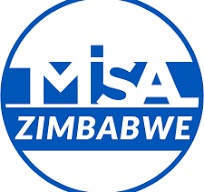By Dumisani Ndlovu
Harare, Zimbabwe – In a concerning episode for press freedom, journalist Canaan Rusike was detained by police on March 31, 2025, while conducting street interviews regarding planned demonstrations in the capital city. The incident raises questions about the treatment of journalists in Zimbabwe as they undertake their essential duty of informing the public.
Rusike, who was working on a story about the anticipated protests, presented his Zimbabwe Media Commission accreditation card to the authorities upon being approached. Despite this, he was taken into custody at Harare Central Police Station, where he spent nearly six hours before being released without any charges. The Media Institute of Southern Africa (MISA) Zimbabwe intervened by dispatching legal representation, which helped facilitate his release after the police verified his credentials.
In a similar incident, nine other journalists were also apprehended while covering protests near the Magistrates Courts in Harare. These journalists faced a brief detention but were released promptly after confirming their status as accredited media personnel.
MISA Zimbabwe expressed concern over these incidents, reaffirming the critical role journalists play in providing access to information. “Journalists should be allowed to carry out their lawful professional duties without hindrance, as guaranteed by the Constitution of Zimbabwe,” a MISA press statement emphasized.
The organization also highlighted the importance of adhering to ethical standards within the profession. They urged journalists to stay informed about safety and security guidelines while performing their duties, particularly in politically charged environments.
The incidents of detention underscore the ongoing challenges faced by journalists in Zimbabwe, particularly in the context of covering demonstrations and political events. Many reporters have come under scrutiny, with some facing intimidation or harassment while fulfilling their role as watchdogs of democracy.
In light of this situation, it is imperative for both the media and civil society to advocate for the protection of journalistic freedoms in the country. Ensuring that journalists can operate freely and safely is vital for upholding democratic principles and ensuring that citizens remain informed about pressing social and political issues.
The swift release of Rusike and the other journalists is a small victory for press freedom, but it highlights the continued need for vigilance and advocacy in safeguarding the rights of media professionals in Zimbabwe.
As tensions rise around demonstrations and political discourse, the commitment to protect journalistic integrity and freedom must remain steadfast to ensure that the media can fulfill its critical role in a democratic society.


